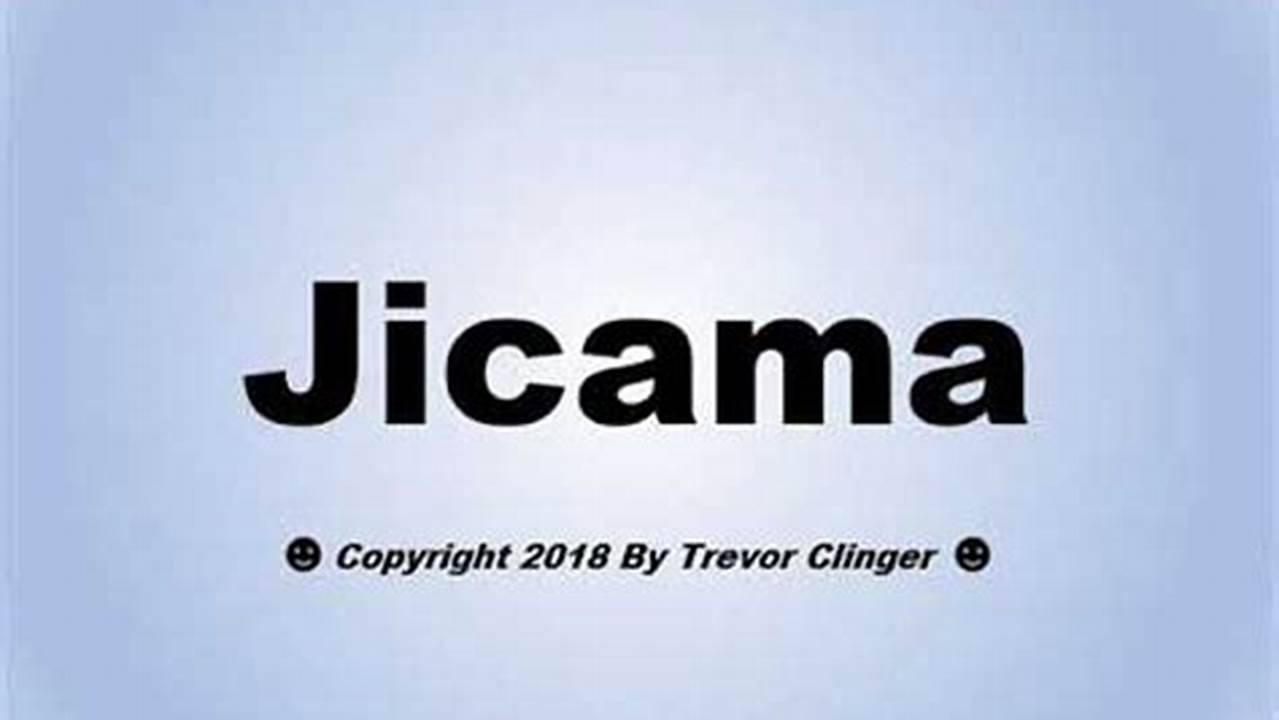
Jicama is a crisp and juicy Mexican root vegetable with edible skin and a sweet, starchy flesh. Like many Spanish words, jicama can be tricky to pronounce correctly for non-native speakers.
The word jicama is pronounced “hee-kah-mah.” The emphasis is on the second syllable, and the “j” is pronounced like the “h” in “house.” Remember to roll the “r” slightly when you pronounce it! Jicama is a healthy and refreshing snack, and it can also be used in salads, stir-fries, and other dishes.









